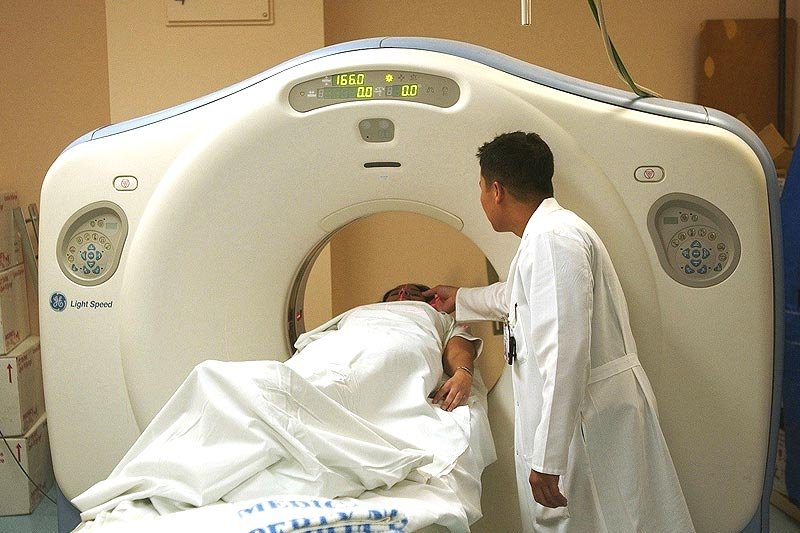CT Scan: Risks and Benefits : The CT scanner has become one of the most useful diagnostic tools in medicine. It allows doctors to examine the body, internally, to determine any issues or injuries.
The scanner uses multiple x-ray images taken from different angles to produce slices of images that create an overall image of the internal body. Since there are a series of images taken, the final result is more in-depth than a normal x-ray and shows blood vessels and soft tissues along with the bones.
Benefits of CT scan
As mentioned, CT and mobile CT scanners are used as a tool for diagnoses. They can help doctors identify the following:
- Any abnormalities or injuries to muscles and bone throughout the body, including bone fractures and tumors.
- It helps locate tumors to their exact location in the body.
- It helps detect and monitor cancer and heart diseases.
- Detect any internal injuries or bleeding.
Besides being used as a tool for diagnosis, a CT scan is also used as an aid in surgery. It helps guide doctors in cases of biopsy and radiation therapy, telling them exactly where to target such a procedure.
Risk of CT scan
While the benefits outweigh the risks, you must be aware of the risks before you go in for a scan.
- Exposure to radiation: X-ray exposes your body to radiation. Since a CT scan uses a series of x-rays, you will be exposed to a certain level of radiation. Now, the level of radiation isn’t higher than the level of radiation you are exposed to on an annual basis from your surroundings, including electronic devices and all. However, it is higher than a normal x-ray and you will be exposed to it all at once. You should consult with your doctor to ensure it is safe for you to be exposed to the radiation emitted by the scan before getting it done.
- Allergic reaction: For scanning certain parts of the body like the abdominals, you may be required to take a contrast material. This is a special dye containing iodine and can either be injected or provided as a drink before the scan. Discuss any allergies you may have with your doctor as the dye can result in skin rash, nausea, vomiting, or other serious health problems. Keep in mind that allergies tend to only happen to about 6 to 8% of individuals that get the scan done.
- Harmful to unborn babies: Radiation of any kind can be harmful to unborn babies. If you are pregnant, be sure to inform your doctor so they can recommend an alternative to CT scan. Usually, they will either tell you to get an ultrasound or MRI, depending on what needs to be diagnosed.
While CT scans don’t pose too much of a threat, you still need to be fully prepared before you get it done. Be sure to disclose everything with your doctor when they do recommend a CT scan to ensure you don’t put your health at risk.
Author :
Scott has been working in the radiology field for over 30 years. He finds the biological phenomenons found in humankind fascinating and appreciates the incredible use that diagnostic imagery has to save lives. Other than acting as the President for Catalina Imaging, Scott enjoys spreading the word on new insights and breakthroughs in the radiology field, specifically the impact that mobile imaging has for patient care.
Related Videos about CT Scan – Risks and Benefits :
Expert alert: Are CT scans safe?
Radiation Dose with CT Scan-Mayo Clinic
How Does a CT Scan Work?




